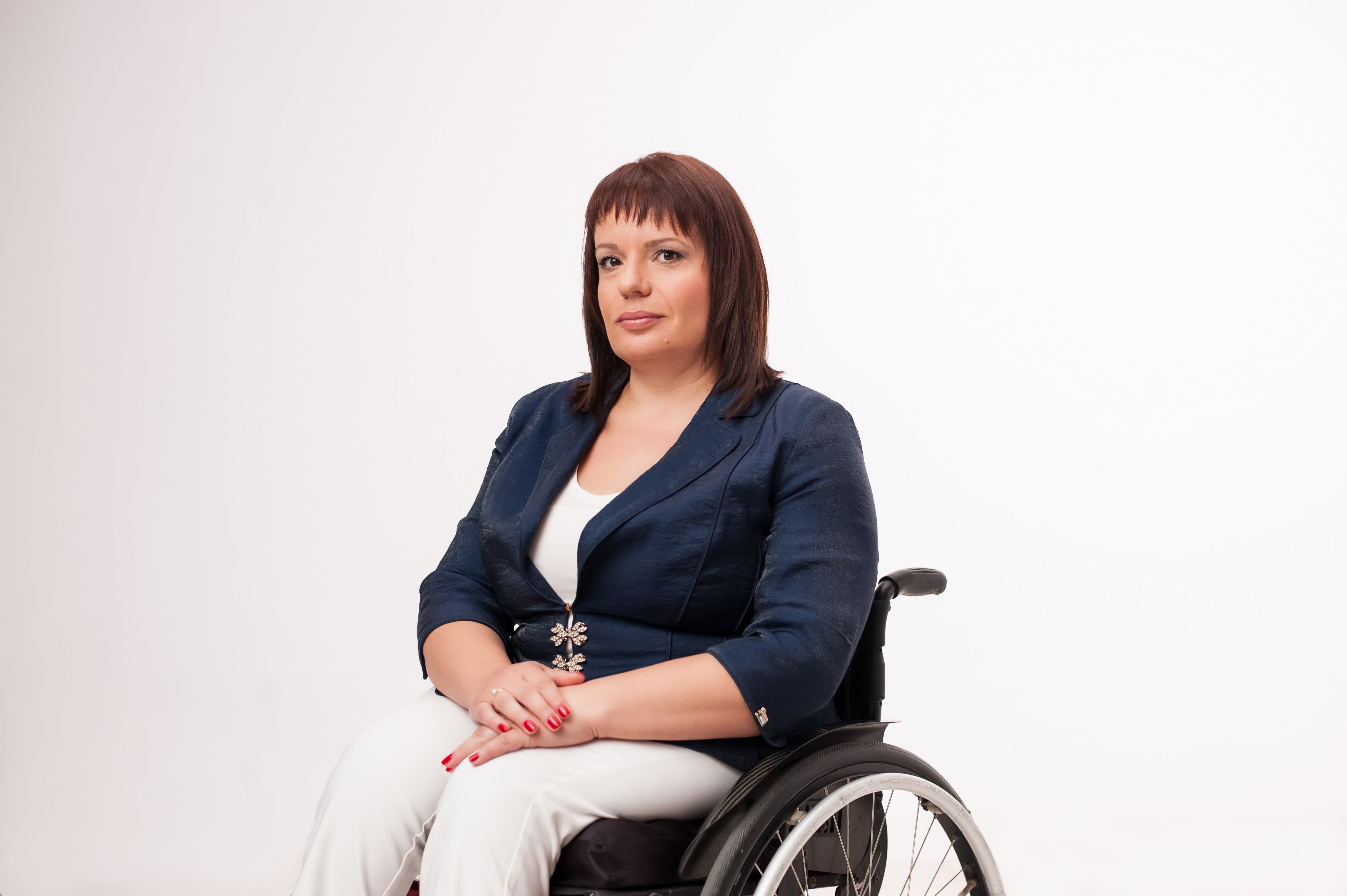In the words of Ljupka Mihajlovska: "Men play in the first league, women in the second, while women with disabilities in the third"
Date:

Ljupka Mihajlovska is a politician and human rights advocate with special focus on women with disabilities. She served in the Serbian Parliament until 2020 and is now a program director of the non-governmental organisation "For accessible environment". Last year, she was one of the participants of the UN Women's training for trainers on women's political participation and leadership.
"Participating in political processes where change is initiated and decisions are made whether at the local, regional or national level is the most powerful platform for change. Representative bodies should reflect the structure of the population. As we are collecting data on the population that is gender disaggregated, we should do something with it to enable everyone exercise equally their human rights. The right to political participation is one of the basic rights and that is a sufficient reason not to deny it to women. Political participation itself does not guarantee power and influence, but it is a basic prerequisite.
On the Serbian political scene, women are generally not competing with their male counterparts. As if there is an A list or the first league which is male and a B or second league which is female. I believe that no man sees a woman as competition, regardless of what qualifications she has, because he is aware that he is always in a better position. On the other hand, a woman with a disability can eventually see another woman as competition, although due to the double discrimination she is facing, she belongs to a third league. A woman with disability is at a disadvantage compared to a man on at least two grounds- as a woman and as a person with disability.
Earlier in my career, when I was a parliamentary member, I had proposed amendments to the Law on the Election of Members of Parliament, which stipulated the obligation of political parties to nominate at least one person with disability who would be guaranteed seat in the Parliament if the party passes the minimum stipulated threshold. Not a single argument was received to challenge this proposal, but the proposed amendments were not accepted in the end. The quota system is a good initial affirmative measure as it would otherwise be difficult to motivate women with disabilities to enter a race that is already lost. In addition, it is necessary to consider amending the Law on the financing of political activities and providing additional financial resources to political parties that have a delegate with a disability.
Actively engaging in politics, which is more than exercising the right to vote, is a job or a profession like any other. It requires full commitment of the people who deal with it. In a rather patriarchal society such as ours, women are facing gender-imposed roles- all household and family responsibilities burden women to a greater extent, and this work is also unpaid, not leaving much room for a career. Women with disabilities are additionally facing physical and communication barriers as well as barriers in attitudes among general population. In addition, basic things such as accessible public transport, accessible facilities, accessible information, support services and affirmative programs for greater participation of women with disabilities in political and public life are missing.
On the other hand, in the context of women in politics, violence in the digital sphere is extremely present, because we live in a culture of reduced tolerance. Many people post things they would never say in person. In some countries there are initiatives to adopt laws against hate speech on the Internet. In addition to legislation changes, constant campaigns are needed that draw attention to all the dangers of cyber violence, both for the perpetrator and the victim.
Moreover, it is extremely important what kind of message representatives of the highest state institutions are sending. In this regard, we have two very significant and positive things in Serbia. One is that the Law on Gender Equality was adopted in the Republic of Serbia in 2021, and the other is that a Ministry was formed in the newly elected Government to deal with gender equality. This sends a strong message that the state recognizes the importance of the issue, but also that it will systematically work to create conditions towards full gender equality."